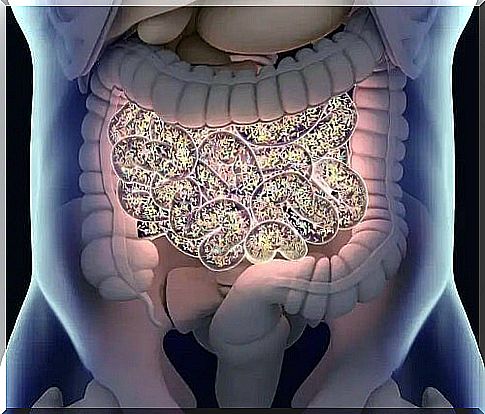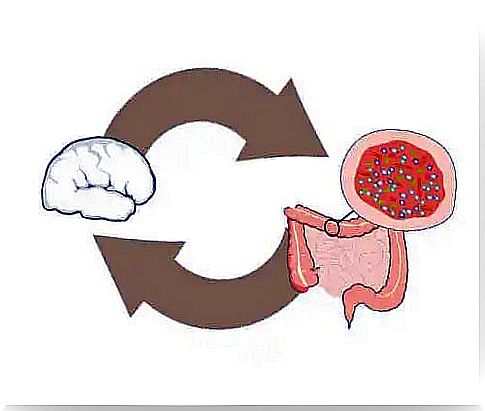Intestinal Bacteria And Obesity: A Treatment

Humans have an enormous amount of bacteria in the body, which helps them perform many functions, such as digestion. Some protect us from other bacteria capable of causing disease. These include intestinal bacteria. Today, we want to look more closely at the possible relationships between intestinal bacteria and treatments for morbid obesity.
Intestinal bacteria make up the intestinal microbiota. This is a set of microorganisms that live permanently in the digestive tract. It consists mainly of bacteria, but there may also be viruses and fungi.
The intestinal microbiota represents almost 3.3 kg of body mass. According to scientists, these bacteria perform a multitude of functions. It facilitates some of the metabolic reactions we need to live. At the same time, they stimulate the immune system.
Currently, the role of these intestinal bacteria in aspects such as obesity is being investigated. In this article, we will explain the latest findings on this topic and find out why intestinal bacteria can be an important factor in the treatment for obesity.
What is the role of intestinal bacteria?
As already mentioned, intestinal bacteria are microorganisms present in the digestive tract. They consist of different species. In addition, there is a different gut microbiota in each person.
Scientists have studied these differences to demonstrate what functions beneficial bacteria perform in the human body. They found that having a healthy microbiota helps maintain a general balance.
It seems that intestinal bacteria have decisive roles in metabolism. Apparently, they help regulate appetite and weight, as well as the inflammatory process associated with obesity. They may even play an important role in stress management.
For example, people in good health have many bacteria of the genus Clostridium. Those who have a problem with the immune system have a much smaller number of such bacteria.

Recent studies indicate that intestinal bacteria may play an important role in certain diseases. For example, because it is involved in glucose metabolism, it may be related to diabetes.
It could also be related to various cardiovascular diseases. In obese people, variations in the intestinal flora have been detected. It is one of the most relevant research fronts due to the high incidence of obesity in the current population. It is estimated that around 650 million people are obese worldwide.

Intestinal bacteria and obesity: a possible treatment
When there is an imbalance in the amount of intestinal bacteria, various changes can occur. First of all, it seems that many obese people have bacteria capable of using much more energy present in certain foods. That is, they absorb more nutrients than others. Therefore, the final caloric intake is higher than in weaker people who cannot use these nutrients. Other changes that vary depending on the intestinal bacteria present in the obese individual are:
All these variations are still under investigation. But they are an important topic for research. This is because, if it does play a key role in weight management, it could be the basis for future treatments for obesity.
Therefore, treatment would consist of changing the proportion of intestinal bacteria. The goal would be to find balance. This can be done with certain probiotics or even stool transplants.
Although it may seem strange, stool transplants are already used to treat certain infections. They help to replace the bacterial flora present in the intestines.
In conclusion, all these aspects are still under investigation, but they represent an important progress for medicine.









